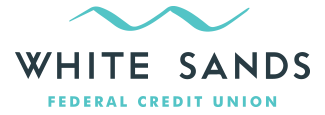8 questions to ask when shopping for a mortgage

It doesn’t matter if you are shopping for your first mortgage or fifth, it’s a little stressful for most people. Obtaining a mortgage loan is a complicated and detailed procedure that can take months to complete. To help you stay organized in the mortgage search process, here are some questions you should ask when looking for a mortgage lender. It might help if you take notes so you can objectively evaluate and compare.
1. What is the rate?
This one seems obvious, but it is an important part of the mortgage that greatly affects your payment. A quick calculation shows that a 30 year, $200,000 mortgage loan at 4.00% APR has a payment of $955. Up that rate to 4.50% APR and the payment jumps to $1,013. White Sands FCU mortgage rates are here.
You also want to find out if the lender offers fixed rate or an adjustable rate mortgages (ARM). Fixed rates don’t change, and provide a predictable payment every month, but they are more expensive. An ARM is lower than a fixed rate, which will make your payment lower. However, an ARM has the potential of rising significantly over the life of the mortgage loan, and the monthly payment will rise in tandem.
Finally, ask about points. Points are a method of buying down the rate. Basically, you pay up front to get a lower rate and thus a lower payment.
2. What will the mortgage payment be?
This goes right along with the rate question above, but there is more to a payment than the rate and term of the mortgage loan. The payment usually includes escrow (monthly collection of property taxes and insurance), and private mortgage insurance (PMI) if you don’t put 20% down. If you get an FHA loan (insured by the Federal Housing Administration), there is a similar insurance premium that gets added to your payment. The lender should have a good idea of the property tax rates where you live. Homeowners insurance quotes you can get by calling several insurance agencies.
3. What is the payment grace period?
Most people don’t plan to be late on their mortgage loan, but you will probably want to know what the time period is between your due date and when you will be dinged a late fee. At White Sands FCU, the payment grace period is 15 days, and the late payment fee is five percent of the payment.
4. How much do I need to put down?
Many mortgage lenders require at least five percent of the purchase price be made as a down payment. If you want to avoid having private mortgage insurance added to your payment, the down payment requirement is 20 percent. But down payment requirements also depend on the type of mortgage loan. For example, a FHA loan only requires 3.5 percent down.
5. What are estimated closing costs?
There can be dozens of one-time fees the borrower will have to pay when the loan is closed (finalized). Some can be rolled into the loan and others have to be paid up front. Closing costs are typically two to five percent of the purchase price of the loan. The mortgage lender should be able to estimate your closing costs. According to Zillow, the online real estate database company, the most common are:
- Appraisal – an appraisal company determines the true value of the home
- Credit report – what it costs the lender to pull your credit report
- Application fee – cost to the lender for processing your application
- Closing fee – to the title company for conduction the transaction of finalizing the loan
- Escrow deposit – so there is enough money to pay your taxes and insurance when due.
- Origination fee – covers lenders administrative costs
- Points – what you pay up front to “buy down” the interest rate
- Recording fee – what it costs to record the property deed at the local government recording office
- Is there a prepayment penalty?
6. Is there a prepayment penalty?
Some mortgage lenders will access a penalty if the loan is paid off before a certain time period. The penalties and requirements vary from lender to lender, but the prepayment penalty is often assessed when more than 20 percent of the loan balance is paid off in a year. This can happen when you sell or refinance your home, or if you come into a chunk of money and want to pay off the mortgage. The penalty amount is calculated as a percentage of the interest in a particular time period, for example six months. White Sands FCU does not assess a prepayment penalty on any of our mortgage loan products.
7. How long will it take to close?
There are a lot of documents to gather, regulations to comply with, and tasks to complete in the mortgage loan process. How long the process takes can depend on the type of loan (FHA or conventional or VA) the mortgage lender’s resources, the number of loans they are processing, and the ability of appraisers and inspectors to act in a timely fashion. Thirty to 45 days is the average. Ask if there is anything you can do to avoid delays.
8. Will you sell my loan?
This may not matter to you, but it will to some people. Lenders often sell their mortgage loans to companies that specialize in servicing loans. The originating lender may retain the servicing (collecting the payment, managing the escrow, etc.) or it may go along with the sold loan. They do this to generate income and to comply with regulations. Find out if the lender you are considering will sell your mortgage loan and to who. You will want to know where to send your payment and who is responsible for managing your escrow account. If your mortgage is sold, your original lender is required to notify you.
Contact Us
Call Center:
(575) 647-4500 or
Hours of Operation:
Monday thru Friday, 8 am-5 pm
Mailing Address:
P.O. Box 99
Las Cruces, NM 88004
Routing & Transit # 312276470
Federally Insured by NCUA
Your savings federally insured to at least $250,000 and backed by the full faith and credit of the U.S. Government. National Credit Union Administration, a U.S. Government Agency.
Equal Housing Lender
We do business in accordance with the Federal Fair Housing Law and the Equal Credit Opportunity Act.
White Sands Federal Credit Union is committed to providing a website that is accessible to the widest possible audience in accordance with the WCAG 2.0 standards and guidelines. We are actively working to increase accessibility and usability of our website to everyone. If you are using a screen reader or other assistive technology and are encountering problems using this website, please contact us at 575-647-4500 or 1-800-658-9933. Please provide the location of the inaccessible information. All products and services available on this website are available at all White Sands Credit Union branch locations.

